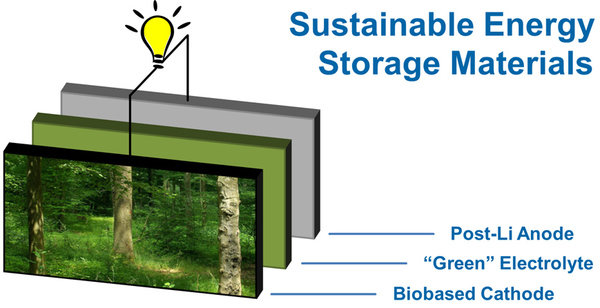
Sustainable Energy Storage Materials
Nowadays society has an ever growing demand for energy. Not only are there, fortunately, more and more people in poor countries with access to electricity, heating, etc.; also in rich countries more and more energy is required for mobile communication and portable devices, faster, larger, and brighter consumer electronics, to only name a few usages. Furthermore, energy in terms of electricity needs to be accessible everywhere with large energy density (electric vehicles, smartphones,…), making storage of electrical energy crucial. Additionally, energy needs to origin from renewable resources. This implies gaining energy when wind is blowing or sun is shining, and not necessarily when energy consumption is high, hence giving another reason why storage of energy is becoming more and more important.
Consequently, currently there is a skyrocketing demand for powerful energy storage devices, which entails mining of incredible quantities of metals under inhumane conditions and production of heaps of electronic scrap once devices are discontinued or battery capacity is dying. The demand for more energy storage will even increase in the next years, entailing severe hazardous waste problems a few years after, once all the storage media currently in use is suspended.
In our group, we address this problem by researching sustainable energy storage materials. We want to introduce battery components which can be produced from renewable resources, aiming for truly green energy storage. In this regard, we research electrode materials derived from biomass (decreasing the dependence on rare metals), electrolytes which are nontoxic and comply with principles of green chemistry (to address health hazards which origin from electronic scrap), and alternative solutions for energy storage.
Potential batteries might be made from renewable resources, e.g., from plant polyphenols. The resulting battery parts would be environmentally benign (carbon neutral), inexpensive (since they were made from renewable resources), and hazard-free (no spontaneous combustion, no strong acids or bases involved).
